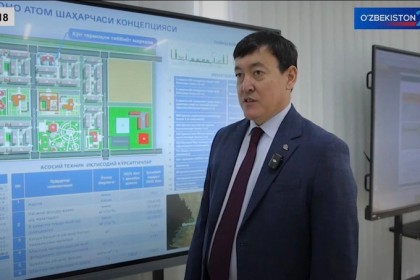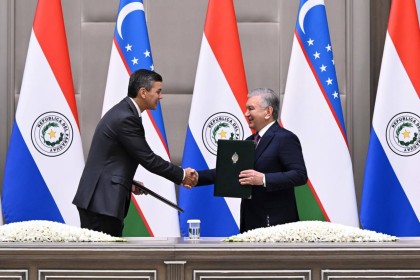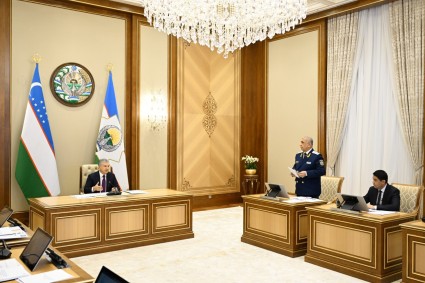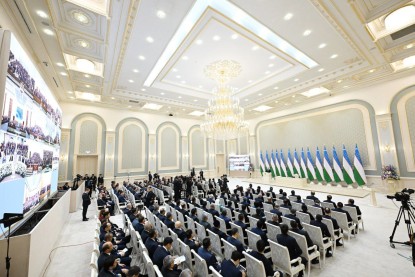At a workshop yesterday in Tashkent, scientists presented findings demonstrating the negative impacts of climate change on water quality in the Amu Darya river basin. The research project, “Provision of Science Based Evidence on Climate Induced Water Quality Challenges in Amu Darya Basin,” was conducted by the Central Asia Regional Environmental Center (CAREC) in collaboration with West Virginia University through the U.S. Agency for International Development’s (USAID) Partnerships for Enhanced Engagement in Research (PEER) program.
The project examined the linkages between emerging climate change challenges and water quality in one of Central Asia’s biggest river systems. CAREC Executive Director Dr. Iskandar Abdullaev reported that because climate change will affect both overall reductions in annual river flow and increase the number of dry seasons, water quality will be diminished for household use and agriculture. Results from the research will help authorities make better-informed decisions on water use and management.
Gary Robbins, USAID Country Director for Uzbekistan, stated that “In a region where shared water resources are scarce, it is important for policy makers to make informed, data-driven decisions based on sound science. It is important that the findings we discuss here today lead to concrete action.”
Representatives from USAID, CAREC, the International Water Management Institute (IWMI), the Scientific Information Center of the Interstate Coordination Water Commission of Central Asia (SIC ICWC), Amudarya and Syrdarya Basin Water Organizations, and the Potsdam Institute for Climate Impact Research attended at the event, held at the Scientific and Innovations Cluster of Tashkent Institute of Irrigation and Agricultural Mechanization Engineers.
PEER is a competitive awards program that brings together scientists from the United States to work in partnership with scientists in countries where USAID has programs. PEER fosters collaborative research, builds lasting relationships, and advances scientific knowledge that has the potential to improve the lives of people around the world. Since 2011, PEER has conducted more than 300 research projects in nearly 50 countries. In Central Asia and Afghanistan, PEER has supported 17 research partnerships on water management and climate change, including seven in Uzbekistan.














